Road scholar: President Susan Tighe is driving change at McMaster
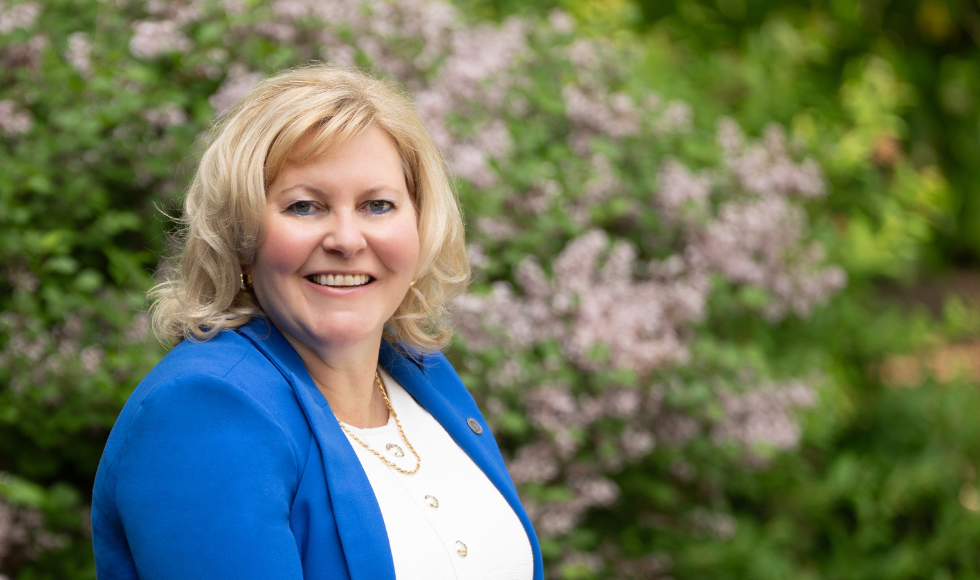
Tighe is bringing her integrated, long-range view to her role as McMaster University’s ninth President and Vice-Chancellor.
From her experiences in civil engineering and university leadership, Susan Tighe knows the importance of a strong foundation – both literally and metaphorically.
As an internationally respected researcher and expert in pavement engineering, she knows why some roads stand up and others fall apart, and especially how that affects a community.
As a university leader, she values a strong team, principled action and a sound financial base as catalysts for building on the foundation of history, reputation and a tradition of excellence.
Today, Tighe is bringing her integrated, long-range view to her role as McMaster University’s ninth President and Vice-Chancellor, applying the problem-solving skills and experience she developed while working in the private, public and academic sectors.
“Susan Tighe has unique skillsets which I predict will help her take McMaster to higher levels of excellence,” says John Kelton, former Vice President and Dean of McMaster’s Faculty of Health Sciences, now executive director of the Michael G. DeGroote Initiative for Innovation in Health Care. “I have observed her remarkable analytical skills where she synthesizes information and identifies the ideal pathway forward for McMaster.”
“What do you need me to understand?”
After joining McMaster in 2020 as Provost and Vice-President (Academic), Tighe was instrumental in helping the university navigate the ever-changing complexities of the COVID-19 pandemic, including the pandemic shutdown and restart, managing the safety of campus and preserving the financial security of the institution.
A systematic thinker who embraces complex problems, during the pandemic Tighe sought the wisdom of McMaster experts while prioritizing the university’s primary responsibilities throughout the crisis: teaching, learning and research.
Her starting point during the pandemic was a simple but valuable question she had learned back in the 90s while working as an engineer in the field: “What do you need me to understand?”
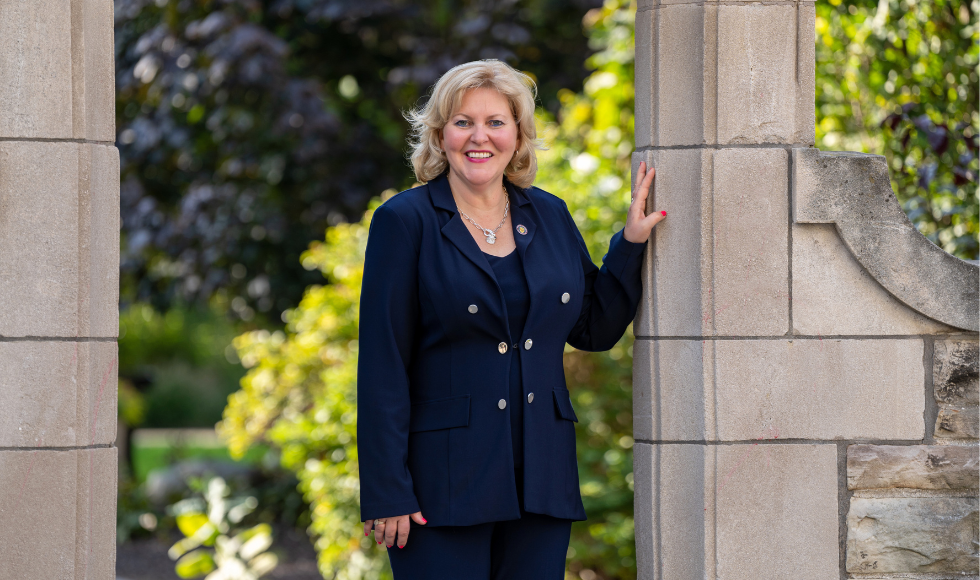
Today, as universities face financial pressure and calls for reform, Tighe’s strategic, team-oriented approach makes her the right leader for McMaster, says physician, entrepreneur and philanthropist Marnix Heersink.
“I have gotten to know Dr. Tighe over the past several years, and the more I get to know her, the more I admire her,” he says. “She has a clear vision for elevating McMaster as a leading international institution. As important as her vision is her remarkable energy and ability to make things happen.”
McMaster as an “engine for innovation”
One of Tighe’s top priorities is to enhance the university’s position as an “engine for innovation,” ensuring that knowledge created at McMaster generates maximum practical and economic impact.
“We need to give people the flexibility and the opportunity to be creative, innovative and entrepreneurial, to be curious, to do our best to get rid of bureaucracy,” she says. “Let’s really focus on what’s important and what’s going to have transformative impact.”
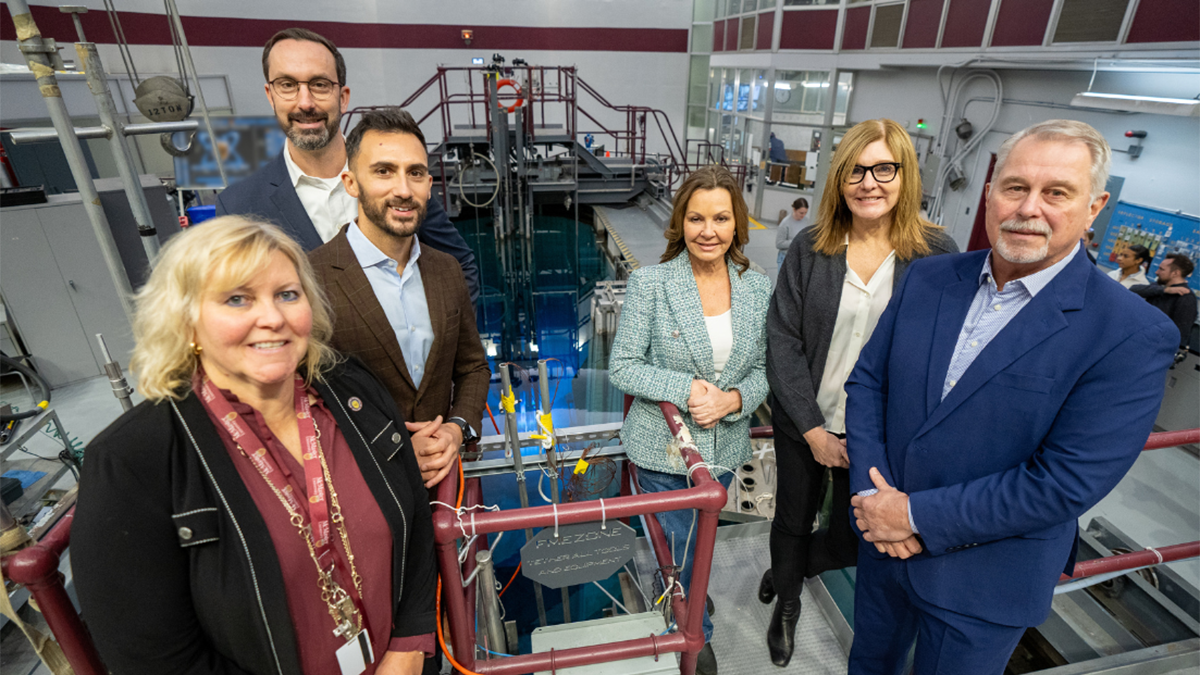
Tighe emphasizes the university’s responsibility to society, both in terms of educating skilled and adaptable leaders for the future and generating research that improves the quality of life.
“I feel that if the public is investing in what we are doing, then we should be benefiting the community,” she says. “We need people who care about their work, about others, and about building a better future.”
Tighe brings a broad range of experience to her new role: She served as a Professor of Civil Engineering and Deputy Provost and Associate Vice President at the University of Waterloo before joining McMaster as Provost.
Before entering academia, she’d worked for Ontario’s Ministry of Transportation on Hwy. 407 and other projects.
Tighe has field experience across North America and in Africa, Chile, India, China, New Zealand and Australia.

As a prolific researcher and advocate for sustainable pavement methods and materials, Tighe has led multiple organizations, including the Canadian Society for Civil Engineering, and has earned numerous awards and honours for her work, which has influenced standards and specifications for airport roads and highway technology globally.
The path from Provost to President
“Susan’s approach has been immensely beneficial for McMaster,” says David Farrar, who preceded Tighe as McMaster President and Vice Chancellor.
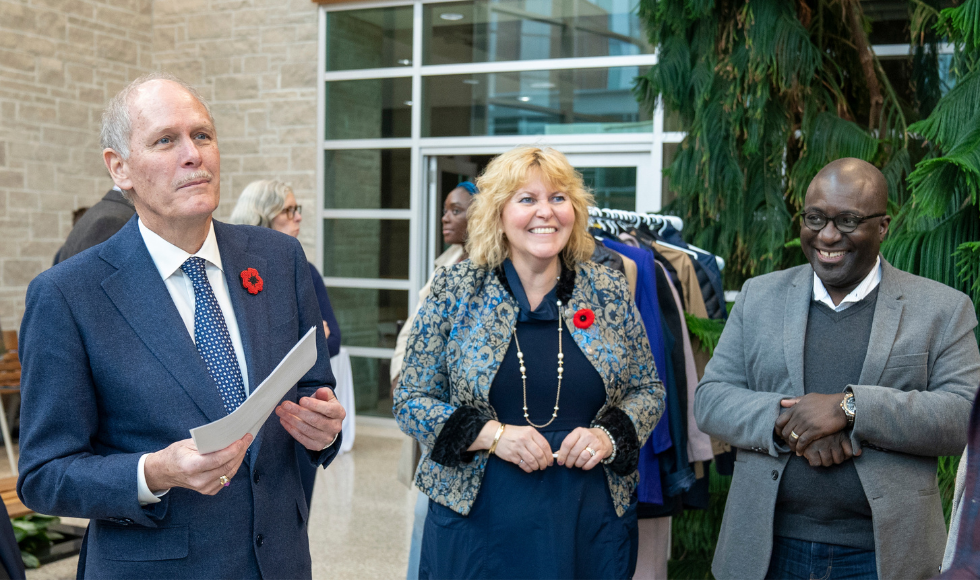
Tighe’s accomplishments as Provost at McMaster included overseeing the successful Black Cohort hiring initiative and the launch of the Indigenous Studies Department.
“Her experience as Provost was pivotal in giving her a thorough understanding of the entire academic enterprise at McMaster,” says Farrar. “Serving as provost is some of the best training you can have for the role of president.”
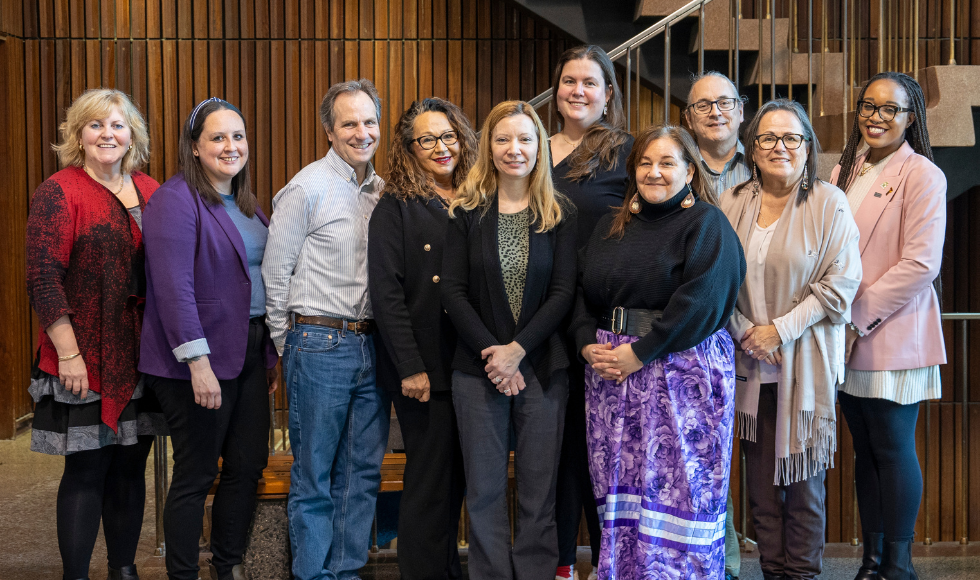
Collaboration for concrete action
While Tighe is widely recognized for her academic and technical achievements, one of her key mentors, Adel Sedra, believes that what sets her apart is her ability to connect the sometimes-disparate interests of academia, industry, government and the community.
Sedra, who served as Dean of Engineering at the University of Waterloo from 2003 to 2012, says Tighe’s experience with the Ministry of Transportation helped her develop a “very clear view of real-life problems” prior to embarking on a career in academia.
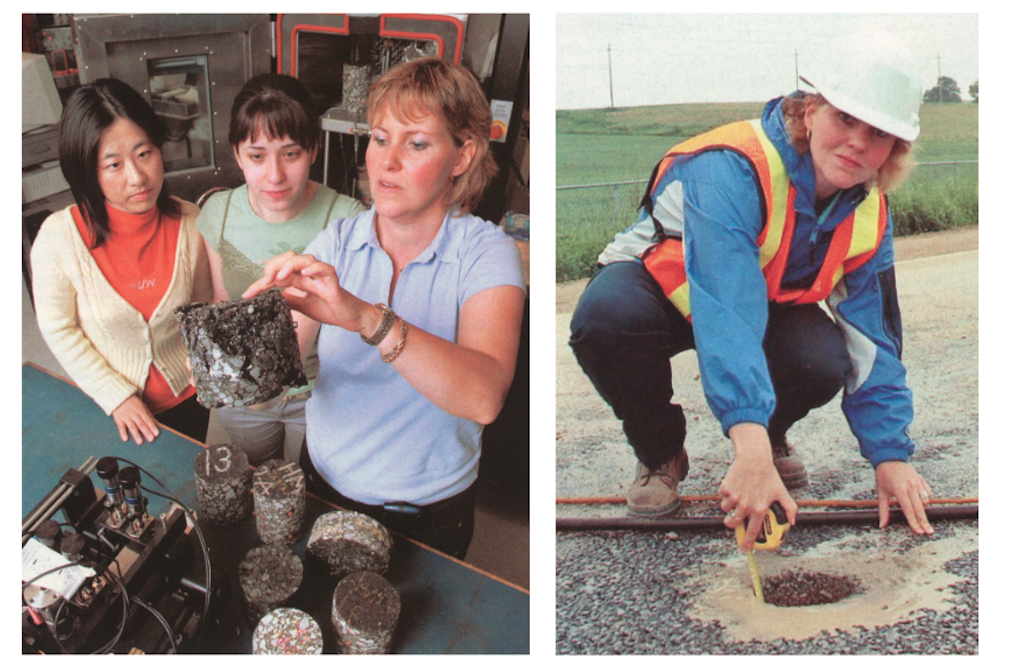
Tighe says building bridges between disciplines and sectors is the key to solving those real-world problems. She wants to build on McMaster’s culture of collaboration.
Here at McMaster, Tighe has worked closely with people across all faculties, and places a high value on interdisciplinarity and inclusivity, says Dean of Humanities Pamela Swett, who served on McMaster’s Provost Council during Tighe’s tenure. Swett says she has always been struck by Tighe’s energy and optimism, especially during challenging times.
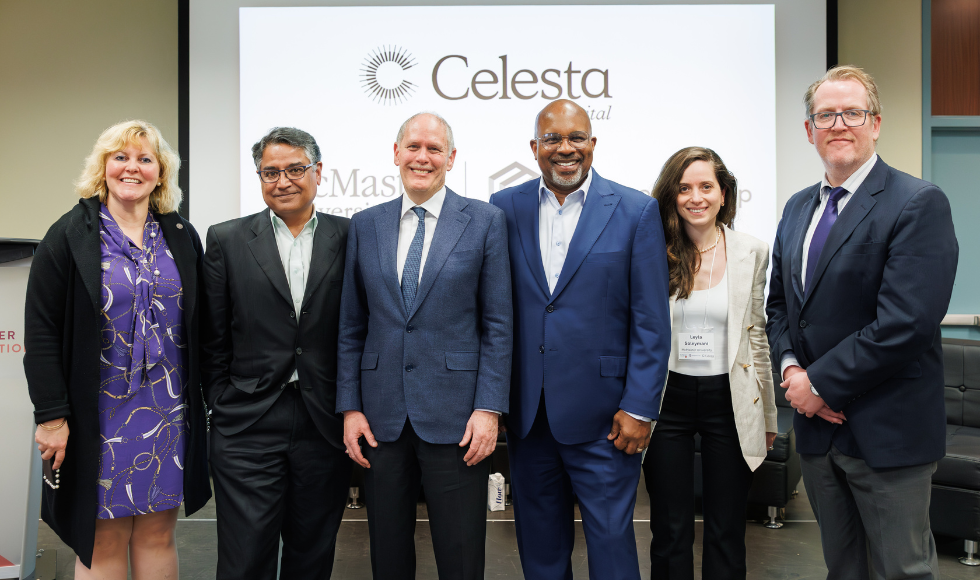
“She has a genuine commitment to enhancing McMaster’s reputation, recognizing that the diversity of scholarship embodied in all six of our faculties is critical to the university’s success,” Swett says. “I have no doubt that McMaster will flourish under Susan’s leadership.”
Tighe says she’s excited to deepen relationships with alumni and donors as the university prepares for an ambitious fundraising campaign.
Tighe is an extraordinary leader whose breadth of experience is matched by a deep passion for our students and alumni around the world, says Lili Litwin, Vice-President, University Advancement.
“Her vision will resonate with McMaster’s 250,000 alumni and inspire us all to help the university make an even greater impact,” Litwin says.
A launchpad for life
Long before they graduate, Tighe wants to ensure McMaster students are set up to embrace rich lives here in Hamilton or elsewhere, recognizing that what they experience outside class is often as important as their academic work.
“How can we be a launchpad for their life? We bring them here. They’re really smart. How do we expose them to all these amazing things, so they come out as future prime ministers, politicians, entrepreneurs, nurses, doctors, writers?”
Tighe says working with students is one of the most rewarding parts of her academic career. She’s supervised more than 100 graduate students, including several while acting as provost at McMaster, and she says she hopes that can continue while she’s president.

“What I appreciate about working with students is they have unvarnished thoughts,” says Tighe. “They see things differently, and I find that helpful. At Mac, we have some of the best and brightest students coming to our institution, so developing that connection with them is so critical.”
Tighe knows the student experience depends on the institution’s financial resources. At a time when many universities are struggling, Tighe has a track record of successfully overseeing budget surpluses during her time at Waterloo and now McMaster, where the operating fund for 2024-25 is projected to close with a $1.9 million surplus.
A new style of leadership
Diana Parry of Waterloo’s Faculty of Health envisions Tighe’s presidency at McMaster as a “new style” of leadership, saying she “listens to understand, as opposed to listen to defend.”
“I think Susan is on the cusp of changing what academia could look like. She is a new kind of role model for what a leader can be. She’s going to put McMaster on the map in ways that it hasn’t been before. Even though she is firmly established in her career, she still feels like a rising star to me. I’m so excited to see her do that, and the beauty is she’s going to take McMaster with her.”
Tighe says she’s grateful to those who have helped her prepare for her new role and says she’s looking forward to the challenges ahead.
“We have a great history and a great foundation. That’s the engineering piece: We have a great foundation, so now we need to ask, how can we build on that?”


